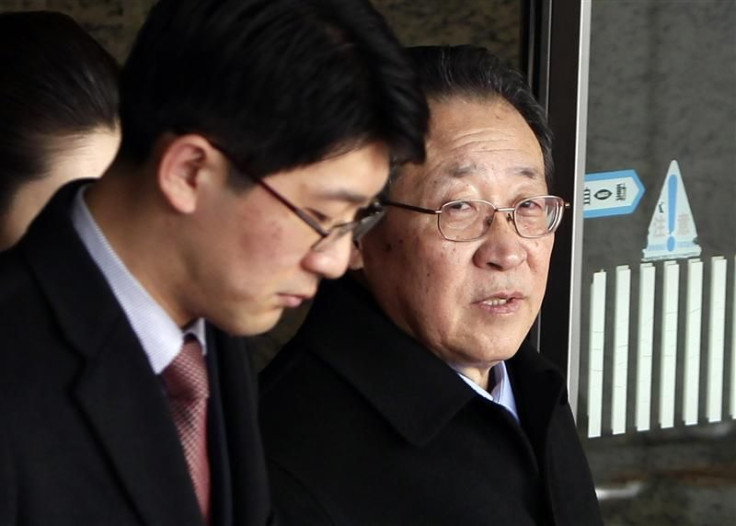North Korea Nuclear Moratorium: More U.S. Resources Down the Drain?

In a surprise move, North Korea agreed to temporarily suspend its nuclear tests and the launch of long range ballistic missile in exchange for 240,000 metric tons of food aid from the U.S. The breakthrough decision was announced in two separate statements released in Washington and Pyongyang on Wednesday.
The announcement, which was hailed by the White House as a step in the right direction, has come two months after Kim Jong-Un succeeded his father as the leader of the secretive communist state.
According to the agreement North Korea will suspend major elements of its nuclear weapons program. This includes a moratorium on nuclear tests, uranium enrichment, launch of long distance ballistic missiles and opening up of North Korea's Yongbyon nuclear facility for International Atomic Energy Agency (IAEA) inspections.
The deal, however, got a guarded response from other countries and, for that matter, from even the U.S. Secretary of State Hillary Clinton, for obvious reasons. Clinton said in a statement that there still are profound concerns about North Korea's behavior.
The deal has the looks of a major breakthrough towards resuming the stalled nuclear disarmament talks in the peninsula. But the very history of the U.S.-North Korea talks and the communist country's dubious record of breaking the promises leaves little hope in the latest agreement too.
A close scrutiny of the current agreement clearly exposes the loopholes.
The History: The U.S and North Korea had signed the Agreed Framework -- a treaty intended at denuclearization and disarmament of the latter -- on Oct. 21, 1994. According to the agreement North Korea had to freeze its indigenous high grade nuclear power plant program and replace it with nuclear proliferation resistant light water reactor power plants, while the IAEA will continue its inspections in North Korea's nuclear facilities to ensure the implementation. This was in exchange for 500,000 tons of heavy crude oil per year from the U.S.
The agreement broke down when reports confirmed that North Korea had violated the terms of Agreed Framework and admitted to the existence of its enriched Uranium program in 2003.
The Bush administration resumed talks with Pyongyang and entered into similar agreements in 2004 and 2007, but North Korea continued its tantrums and violations which ended in breaking the treaties within a year, accusing the U.S. of not keeping its promise.
All the agreements by North Korea were in exchange for either food or fuel aid from the U.S. and on past occasions the Korean authorities had made it very clear that any moratorium is valid only till the aid and peace talks continue. The country is also known for finding loopholes in the agreement to back out, once it gets the emergency aid.
The present deal is no different from the past agreements and analysts have already expressed concern over North Korea's intentions. They point out that the deal allows it to receive immediate food aid which it badly needs and will find loopholes to undermine the agreement once its needs are met.
This deal is the same old story. I don't know why Washington was so anxious to make this agreement, because it's bound to backfire, and very soon, said Lee Dong-bak, a former South Korean official who once negotiated with Pyongyang, to Los Angeles Times.
Moreover, what is unclear from present deal is the current status of North Korea's nuclear program. The analysts point out certain key aspects which the agreement has failed to throw light on.
The deal speaks about uranium enrichment but is silent about the plutonium program. This is crucial in the backdrop of reports that North Korea has already developed plutonium-based nuclear weaponry. Even in earlier instances North Korea had agreed to stall uranium program but had continued with plutonium processing.
The agreement also does not speak about the processed uranium the country possesses already or about the military regime's clandestine sharing of nuclear know-how to countries like Iran and Syria.
North Korea has the notorious history of diverting the aid given in exchange of the agreements to feed its military and the regime. Though the Obama administration has stressed that the aid is humanitarian and is not linked to the deal, North Korea has made it clear in its statement that it will not suspend its nuclear program till it receives the aid promised. Once they get the aid there is nothing the U.S or U.N can do to stop it from backing out from the deal, stating one reason or the other, as in the past.
This has made international analysts to doubt the dynasty's intention. They think the temporary arrangement may be counterproductive, helping the rogue country to throw more tantrums at the expenses of the U. S. resources.
But at the same time some analysts also believe that even a little information that could be gathered from the treaty would help in pushing the denuclearization efforts in the region further.
We haven't had any eyes on this program for over five years now, the agreement it was nonetheless significant because the return of inspectors could shed light on the country's nuclear progress, Victor Cha, a senior analyst with the Center for Strategic and International Studies in Washington, told New York Times.
Another interesting factor is the timing of the agreement. Like the past two deals even this deal has been announced ahead of a presidential election in America.
© Copyright IBTimes 2024. All rights reserved.






















